22 Mar The Importance of Having an Internal Health and Safety Officer
Employers covered by the OSH Act must provide employees with “jobs and a place of employment free from recognized hazards causing, or are likely to cause, death or serious physical harm.” This includes compliance with OSHA statutes, standards, regulations, and others.
Businesses that do not show they’ve taken reasonable precautions to prevent workplace injuries and illness can be found negligent. This can result in costly workers’ compensation claims, higher premiums, hefty fines, a damaged reputation, and injuries, illnesses, or death.
Ensuring Compliance
An internal health and safety officer focuses on accident and illness prevention and implements the latest regulations and guidelines, including those of the Department of Labor, OSHA, and the Environmental Protection Act.
Health and safety is a highly specialized and regulated field and a company health and safety officer must have the expertise to do it well. A good health and safety officer looks beyond managing the basics and instead actively manages risk.
Actively Managing Risk
By performing mandatory and optional testing, random spot checks, evaluating worksites and offices, and polling management and employees, the business is more likely to comply and avoid unnecessary fines and frustration.
A health and safety officer often creates and updates the safety policy, required for all businesses with five or more employees. They also disseminate this vital safety information to employees and carry out risk assessments and inspections to identify and rectify potential risks.
Investigates Incidents
Another important role of the health and safety officer is the investigation of any incidents that occur in the workplace. They record and maintain an accident book, review possible causes, and recommend changes when required.
Alternatively, the health and safety officer may serve the safety committee to fulfill the demands of the company’s safety program. The committee relies on the officer’s expertise and the officer reports progress on safety issues.
Provides Training
The scope of a health and safety officer varies depending on the size and complexity of the company. It can include training employees in the proper use of Personal Protective Equipment (PPE), fire safety, emergency procedures, using machinery properly, handling hazardous materials, and other safety-related issues.
The health and safety officer may also address issues of concern to the public. Sound environmental and sustainability policies and procedures can improve public relations, reduce a company’s carbon footprint, and improve profitability.
A knowledgeable, personable health and safety officer is the ideal candidate to interact with outside parties to ease concerns and bolster company reputation.
Principal Contact
Since a health and safety officer stays abreast of current regulations, they’re the logical choice to advise management and the go-to contact for workers. They are also the principal contact for safety inspectors and union representatives.
A skilled health and safety officer promotes healthy relations and can make doing business less cumbersome, since they understand what’s required and put health and safety first.
Gilbert’s Risk Solutions provides insurance, risk management, and workers’ compensation expertise so you can minimize premiums and risk and maximize coverage. We’re local, reliable, and we’ve served businesses like yours for over 160 years. Why not let us help you, too?


No Comments